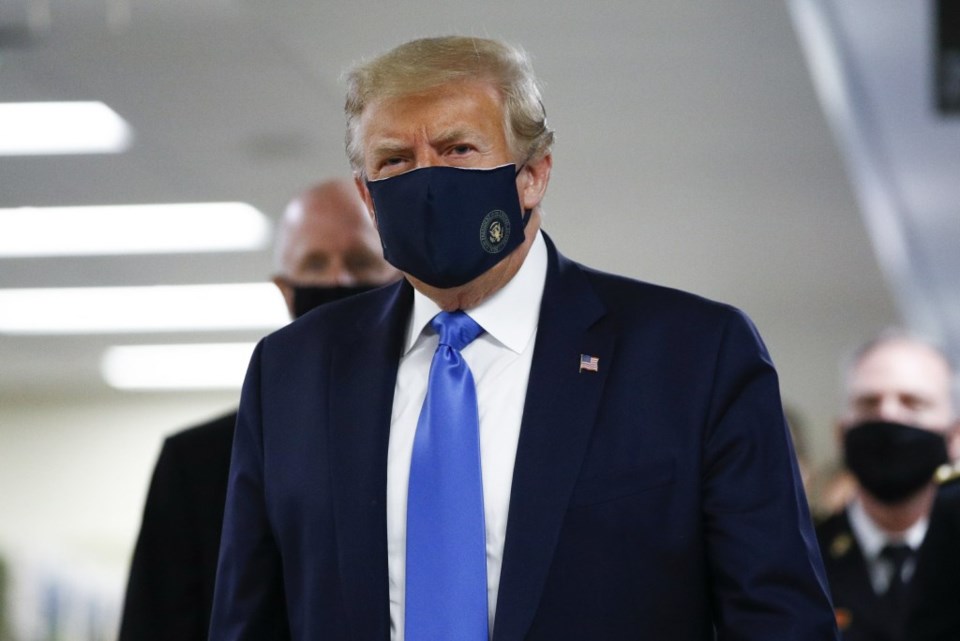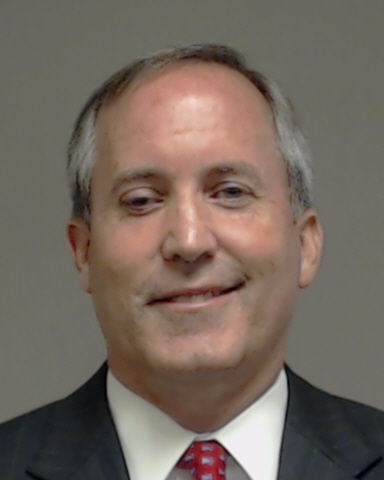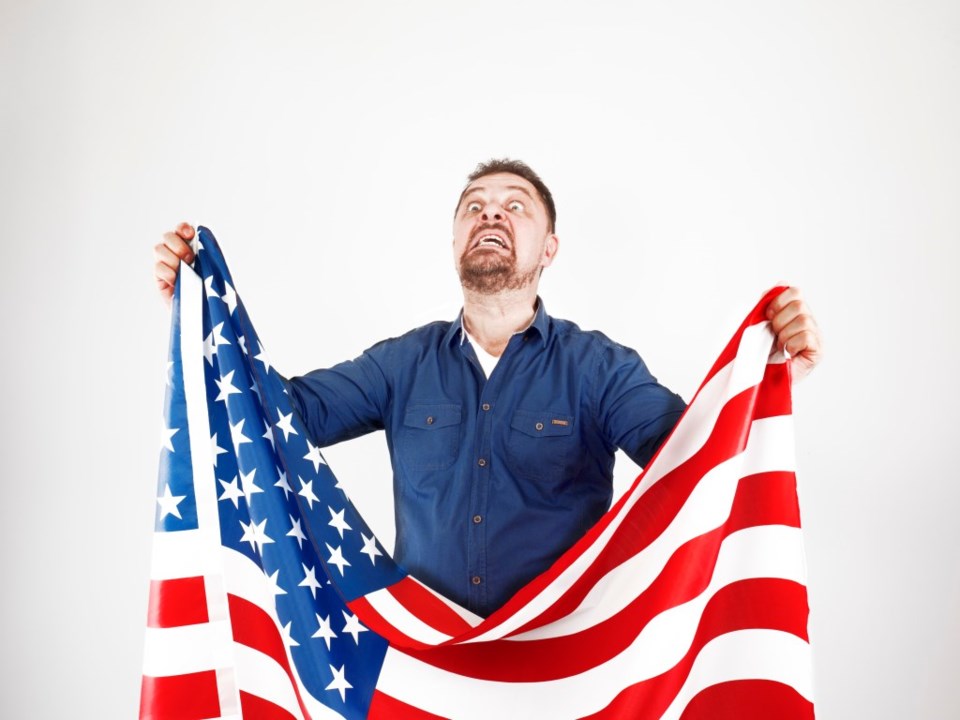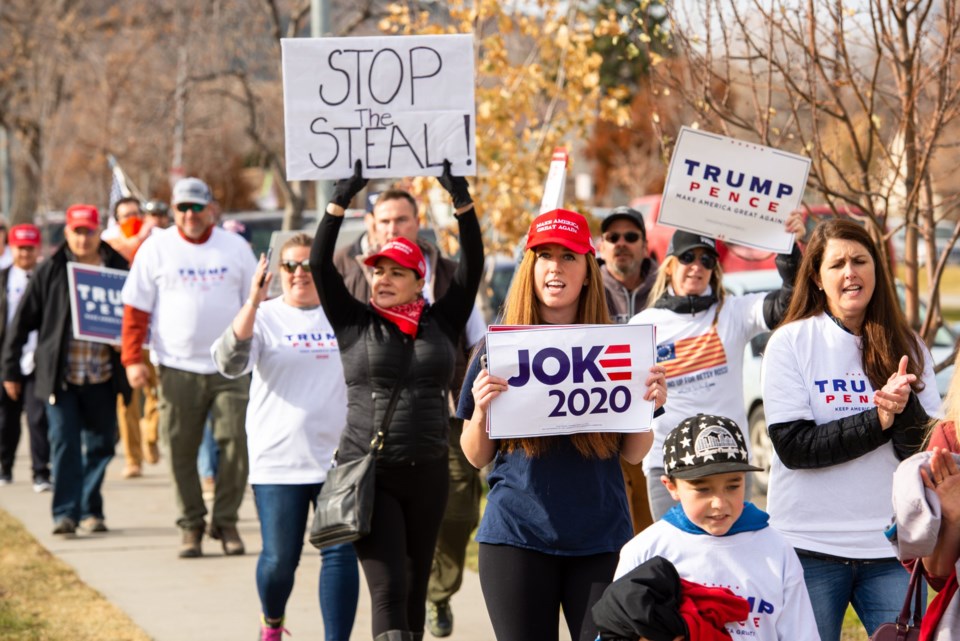Last week, Texas icon Matthew McConaughey, a centrist flirting with a Texas governor’s run, argued that Trump supporters are simply “putting down their last bastion of defense” in an interview with British comedian Russell Brand. He compared their reaction to how liberals reacted when Trump won the presidency in 2016, as if karma had come full circle.
“There are a lot [of people] on that illiberal left that absolutely condescend, patronize, and are arrogant toward that other 50 percent,” he said. He claimed that it is preventing both sides from coming together.
Texas Attorney General Ken Paxton placed himself on the frontlines of that “bastion of defense” on Monday when he filed a lawsuit against battleground states Pennsylvania, Georgia, Michigan, and Wisconsin to prevent them from certifying election results in favor of Joe Biden, who may or may not be president-elect, depending on what part of the country you’re from.
Two days later, 17 attorney generals from states Trump had won told the Supreme Court that they supported Paxton's lawsuit. A few hours later, news broke that President Donald Trump asked the Supreme Court to let him join Paxton’s lawsuit "in his personal capacity" as a candidate, as if we can separate the man from the presidency.
On Friday, the Supreme Court dismissed Paxton's lawsuit after 100 Republicans announced their support. "Texas has not demonstrated a judicially cognizable interest in the manner in which another State conducts its elections," the court's majority opinion read.
In the Dec. 7 lawsuit, Paxton claimed the pandemic-related changes in battleground states broke the law, which led to voter fraud. He highlighted several reasons why he asked the Supreme Court to intervene:
- Non-legislative actors purported amendments to States’ duly enacted election laws, in violation of the Electors Clause’s vesting State legislatures with plenary authority regarding the appointment of presidential electors.
- Intrastate differences in the treatment of voters, with more favorable allotted to voters – whether lawful or unlawful – in areas administered by local government under Democrat control and with populations with higher ratios of Democrat voters than other areas of Defendant States
- The appearance of voting irregularities in the Defendant States that would be consistent with the unconstitutional relaxation of ballot-integrity protections in those States’ election laws.
“All these flaws — even the violations of state election law — violate one or more of the federal requirements for elections,” Paxton said in the lawsuit.
But it’s a claim that the U.S. election security officials refuted.
Legal experts were quick to call Paxton’s lawsuit a sham. Election law expert Richard Hasen told NPR that Paxton's lawsuit "is a press release masquerading as a lawsuit. ... What utter garbage. Dangerous garbage, but garbage."
But what if there was another reason for Paxton’s lawsuit and President Trump’s willingness to cry election fraud when experts claim he is crying wolf?

The National Fight
Since election day, President Trump and his political supporters have been seeking to overturn the election results. A small parade of witnesses whose credibility have come into question has appeared across the news media stage. There was the witness at the Four Seasons, the lawn service place not the luxury hotel, who turned out to be a sex offender and a regular on the political circuit. Another belligerent witness appeared Dec. 1 in front of the Michigan House of Representatives with Rudy Guiliani, the president's personal attorney, making unsubstantiated voter fraud claims and some wild ones about former President Barack Obama funding COVID's creation in a Wuhan virus lab in China.
Trump’s legal team submitted the witness's sworn affidavit as part of their lawsuit in Wayne County. On Dec. 3, the presiding state judge said the witness's claims were not credible.
None of it makes sense. Why would a 50-year legal veteran of the court use a witness whose outlandish claims included votes being smuggled in a food truck? Guiliani was the U.S. Associate Attorney General from ‘81 to ‘83 and the U.S. Attorney General for the Southern District of New York from ‘83 to ‘89. After he left the mayor’s office in 2001, “America’s mayor” joined the law firm of Bracewell & Guiliani in 2005. Time magazine named him person of the year in 2001, and Queen Elizabeth knighted him a year later.
Sir Guiliani knows the difference between a good witness and a bad one.
But so does Paxton. He’s no stranger to the courtroom. He’s appeared on both sides of the table as an attorney and a defendant. He’s spent the past five years keeping his felony fraud lawsuit from going to trial in a legal chess game that will no doubt be studied for years to come. His most recent lawsuit is simply one of several filed by President Trump and his political supporters seeking to overturn the election results.
A majority have failed, and legal experts are calling Paxton’s most recent one a longshot, according to a Dec. 8 Texas Tribune report.
Even Sen. John Cornyn doesn’t understand Paxton’s legal chess move.
"Number one, why would a state, even such a great state as Texas, have a say-so on how other states administer their elections?” the senator asked CNN’s Manu Raju on Wednesday. “We have a diffused and dispersed system, and even though we might not like it, they may think it's unfair that those are decided at the state and local level and not at the national level. So it's an interesting theory, but I'm not convinced."
Neither was the Supreme Court.

Paxton’s Fraud Allegation
This longshot lawsuit came at a time when Paxton is facing his own charge of fraud. For five years now, Paxton has been haunted by a securities fraud felony lawsuit out of Collin County. Over the years, it’s appeared periodically in headlines, followed by news of court delays and venue changes, leaving some to wonder where Paxton's fraud case has gone.
For five years, Paxton has denied wrongdoing.
Then, in early November, Paxton’s former aides -- Mark Penley, former deputy attorney general, and David Maxwell, former director of law enforcement -- filed a whistleblower lawsuit. They alleged that Paxton had retaliated and fired them because of an incriminating report they released, which alleged that Paxton had broken the law when he used the Texas AG’s Office to help one of his friends, an Austin real-estate developer and political donor. Seven senior colleagues at the Texas AG’s Office made the initial report.
Paxton denies their allegation. The FBI is investigating him for bribery and abuse of office.
“Ken Paxton’s entire career is an exercise in scandal, corruption, and crime,” says Matt Angle, director of The Lone Star Project, an organization that supports Democrat candidates in Texas. “He not only sees personal benefit in supporting a criminal enterprise like Donald Trump, he relates to it as a fellow grifter.
“No one should be surprised that Ken Paxton is dragging our Texas reputation through the mud with a frivolous lawsuit against swing states that President-elect Joe Biden won and Donald Trump lost.”
Paxton would probably deny this characterization, as well, and Republican Trump supporters would no doubt see it as a slight against their Texas reputation if Paxton hadn't filed the election fraud lawsuit. Many have been gathering at “Stop the Steal” rallies around the country, outside the governor's mansion in Georgia, and in downtown Dallas with their Trump flags held high, calling election foul and demanding a recount.
Several recounts have already taken place in battleground states. The results haven’t changed. On Tuesday, the Supreme Court denied Republicans a longshot bid to block Biden's victory in Pennsylvania. Three days later, SCOTUS dismissed Paxton's lawsuit.
It’s unclear how this decision will affect Trump and his political supporters' fight to overturn the election result.
Michigan Attorney General Dana Nessel called Paxton's lawsuit a "publicity stunt."

Packaging Anger
And while Trump sympathizers might label it “a last bastion of defense,” there may be another reason why both sides aren’t coming together. People's frustrations seem to have become a commodity to be bought and sold. Fighting the good fight against liberals and their alleged voter fraud costs money. It is also a pretty good rallying cry for donations, especially when it feels like it’s your patriotic duty, as Vanity Fair pointed out in a Nov. 10 report.
Since the election, the Trump campaign has been emailing their rallying cry to supporters, seeking donations to fight election fraud and "illegal voting": "President Trump has activated the Official Election Defense Fund, and we need YOU to step up and make sure we have the resources to FIGHT BACK against potential voter fraud."
They've raised more than $200 million, multiple outlets have reported. They’re not, however, simply using the money to challenge election fraud in the courtroom. They’re using 60 percent of it to fund President Trump’s new PAC, "Save America."
Why a PAC? Filtering the money through a PAC offers President Trump more flexibility with how he can spend the money. For example, he is using some of it to pay off campaign debts. "This can [also] help further [Trump's] political agenda," Michael Beckel, a research director at Issue One, a bipartisan political reform organization, told NPR in a Nov. 12 report. "It is something that he could use to dole out money to like-minded candidates and includes spending money for expenditures that would be prohibited if it was campaign cash, because campaign cash cannot be used for personal use."
As a businessman, the president knows it is in his best interests to keep the election fraud fight in the limelight of social media and legacy media. People will continue to donate as long as he’s receiving free publicity to promote his agenda (or business model). As one local business owner put it recently:
"He found a need, a need to be angry, a need to blame someone, and packaged it for people to buy. ... Trump has taken politics into Amazon territory."
But at what cost?




